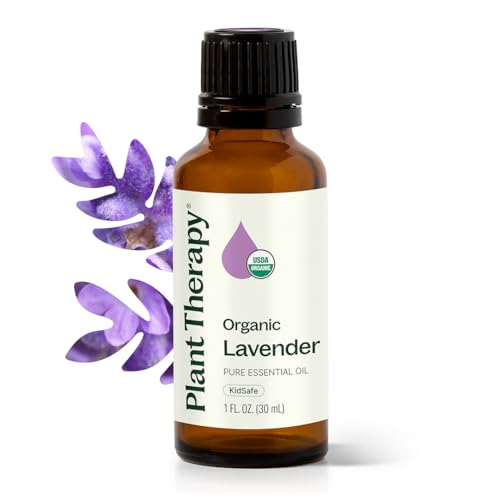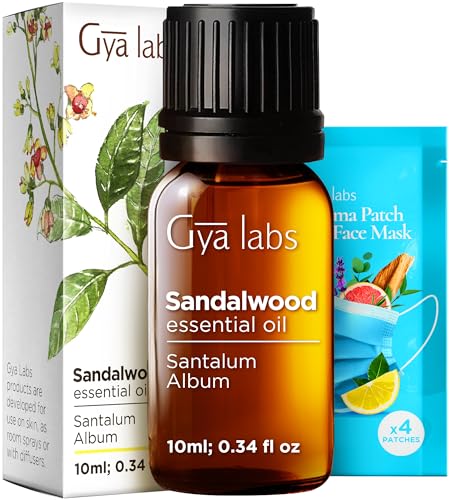Disclosure
This website is a participant in the Amazon Services LLC Associates Program, an affiliate advertising program designed to provide a means for us to earn fees by linking to Amazon.com and affiliated sites.
Lavender, chamomile, and sandalwood are among the best essential oils for sleep due to their calming effects on the mind and body. These natural remedies have been used for centuries to promote restful, uninterrupted sleep—and modern research backs their effectiveness.
If you’ve ever struggled to fall asleep, stay asleep, or wake up feeling truly rested, you’re not alone. In fact, sleep problems affect nearly one in three adults globally. That’s where essential oils come in. Unlike sleep aids that often cause grogginess or dependency, essential oils work gently with your body’s natural rhythms to help you wind down, relax, and sleep better.
Aromatherapy—using essential oils through diffusers, topical application, or even pillow sprays—has gained popularity as a non-invasive and accessible way to improve sleep quality. But with so many oils on the market, it can be hard to know which ones truly work and how to use them effectively.
In this guide, we’ll explore the top essential oils for better sleep, how they work, and how to incorporate them into your nightly routine to help you wake up refreshed.
Best Essential Oils for Sleep
Below are three of the most effective and trusted essential oils for improving sleep quality. These picks are based on research, expert reviews, and real user experiences.
Plant Therapy Organic Lavender Essential Oil
Lavender is widely recognized for reducing anxiety and improving sleep. This organic, therapeutic-grade oil is pure, gentle, and perfect for diffusers or pillow sprays.
- CALMING AND RELAXING: Organic Lavender oil is ultra-versatile and loaded with…
- IDEAL FOR NATURAL SKIN CARE: Dilute 2-5% of Organic Lavender in a carrier oil of…
- MOST VERSATILE OIL AVAILABLE: Can help produce a calm, peaceful, and tranquil…
Cliganic USDA Organic Roman Chamomile Essential Oil
Roman chamomile soothes nerves and promotes emotional balance. This Cliganic version is steam-distilled and ideal for bedtime blends or direct diffusion.
- Packaging May Vary – New look, same great product.
- Certified Organic Lavender Oil – Cliganic organic essential oils are proudly…
- 100% Pure, Single Ingredient Oil – Cliganic organic essential oils are a…
Sandalwood Essential Oil by Gya Labs
Known for its grounding scent, sandalwood helps quiet mental chatter. Gya Labs’ oil is ethically sourced and a favorite for creating a calming sleep environment.
- A Calming Escape. Use sandalwood essential oil for diffuser sessions to create a…
- Confidence In Your Skin Care Routine. Blend sandalwood oil for skin with a…
- Wellness That Speaks To You. Elevate your daily rituals with sandalwood…
These essential oils are excellent for creating a relaxing bedtime ritual, whether you use them in a diffuser, bath, or mixed with a carrier oil for topical use.
How Essential Oils Help You Sleep
Essential oils support sleep by working with your body’s natural relaxation response. Their soothing aromas can calm your nervous system, lower heart rate, and reduce stress—key ingredients for restful sleep.
When you inhale essential oils, scent molecules travel through the olfactory system to the brain, particularly the limbic system, which influences emotions, memory, and behavior. This direct line to your brain explains why certain scents like lavender and chamomile can immediately trigger a sense of calm and relaxation.
Here’s how essential oils promote better sleep:
- Reduce anxiety and stress: Oils like lavender and bergamot help decrease cortisol, the stress hormone that often keeps you awake.
- Promote relaxation: Scents such as cedarwood and ylang ylang are known to activate the parasympathetic nervous system—your body’s natural “rest and digest” mode.
- Improve sleep quality: Studies show that regular use of essential oils may improve the depth and duration of sleep, not just help you fall asleep faster.
- Balance mood: Oils like frankincense or sandalwood can elevate mood and ease emotional restlessness before bed.
Unlike synthetic sleep aids, essential oils work in harmony with your body, making them a safe and sustainable option for nightly use. Whether diffused into the air or applied topically with a carrier oil, these natural remedies can become a powerful part of your sleep routine.
How to Use Essential Oils for Better Sleep
Incorporating essential oils into your nightly routine can be simple and highly effective when done correctly. There are several methods to enjoy the calming benefits of essential oils, each suited to different preferences and lifestyles.
Diffusing:
One of the most popular ways is using an essential oil diffuser. Add a few drops of your chosen oil to the diffuser with water and let the aroma fill your bedroom. This method gently releases the scent, creating a calming atmosphere that helps you unwind before sleep.
Topical Application:
Applying essential oils topically allows the oils to absorb through the skin. Always dilute essential oils with a carrier oil like jojoba, coconut, or almond oil to prevent irritation. Common application points include the wrists, temples, chest, and the soles of your feet. This method is great for those who want a more direct, lingering effect.
Pillow Spray:
Mix a few drops of essential oil with water in a spray bottle and lightly mist your pillowcase or bedding. This provides a subtle scent that helps relax your mind as you settle in for the night.
Bath:
Adding a few drops of essential oil to a warm bath can promote muscle relaxation and calm your nervous system. Make sure to dilute the oils in a carrier like bath salts or milk to protect your skin.
Safety Tips:
- Avoid applying undiluted oils directly on sensitive skin.
- Patch test new oils to check for allergic reactions.
- Consult a healthcare professional if pregnant or dealing with health conditions.
Using essential oils consistently and mindfully can enhance your sleep quality naturally, without side effects.
Top Essential Oils for Different Sleep Issues
Not all sleep problems are the same, and luckily, certain essential oils target specific challenges. Whether you struggle with falling asleep, staying asleep, or calming a restless mind, there’s an oil that can help.
1. Trouble Falling Asleep:
- Lavender: Renowned for its calming properties, lavender helps reduce anxiety and promote quicker sleep onset.
- Roman Chamomile: Soothes nervous tension and creates a peaceful mind ready for rest.
2. Frequent Nighttime Awakenings:
- Cedarwood: Encourages deeper, more sustained sleep by promoting relaxation and reducing restlessness.
- Valerian: Known for its sedative effects, valerian oil can help maintain uninterrupted sleep cycles.
3. Stress and Anxiety-Related Sleep Issues:
- Bergamot: Uplifting yet calming, bergamot reduces stress hormones and calms the nervous system.
- Frankincense: Supports emotional balance and mental clarity, helping ease anxious thoughts.
4. Restless or Overactive Mind:
- Sandalwood: Its grounding aroma calms racing thoughts and promotes mindfulness.
- Ylang Ylang: Helps soothe emotional tension and regulate heart rate for a calm state of mind.
Using the right essential oil based on your unique sleep challenge can make a significant difference. Experimenting with blends or combinations can also be beneficial, but always start with small amounts to gauge your response.
Precautions and Safety When Using Essential Oils for Sleep
While essential oils are natural and generally safe, it’s important to use them mindfully to avoid adverse reactions and maximize benefits.
Dilution is Key:
Essential oils are highly concentrated and can irritate the skin if applied undiluted. Always mix them with a carrier oil—such as coconut, jojoba, or almond oil—before topical use. A safe dilution ratio is typically 2-3 drops of essential oil per teaspoon of carrier oil.
Patch Test First:
Before using any new essential oil, do a patch test. Apply a small diluted amount to your forearm and wait 24 hours to check for any redness, itching, or irritation.
Avoid Certain Oils if Pregnant or Nursing:
Some oils, like rosemary, peppermint, and clary sage, may not be safe during pregnancy or breastfeeding. Consult your healthcare provider before use.
Use High-Quality, Pure Oils:
Choose therapeutic-grade, organic essential oils from reputable brands. Poor-quality oils may contain synthetic additives or contaminants that reduce effectiveness and safety.
Be Careful with Children and Pets:
Some essential oils can be harmful to children and pets. For instance, eucalyptus and peppermint oils should be avoided around young kids. Always research or consult an expert when using oils in homes with children or animals.
Avoid Ingestion Unless Guided:
Never ingest essential oils unless supervised by a certified aromatherapist or healthcare professional.
By following these safety tips, you can enjoy the calming and sleep-enhancing benefits of essential oils without worry.
Creating a Sleep-Friendly Environment with Essential Oils (200–300 words)
A restful night begins with the right environment, and essential oils can play a key role in transforming your bedroom into a sleep sanctuary. Here’s how to use them effectively to enhance your space:
Diffuse Calming Scents:
Using an essential oil diffuser releases gentle aromas that fill your room with soothing scents. Lavender, chamomile, and sandalwood are excellent choices. Start diffusing about 30 minutes before bedtime to help your mind and body transition into relaxation mode.
Scent Your Bedding:
A light spray of diluted essential oils on your pillowcase or bedsheets can create a comforting scent that lingers as you fall asleep. Use a small spray bottle with water and a few drops of your favorite sleep oil for a subtle effect.
Create a Pre-Sleep Ritual:
Pair aromatherapy with other calming activities, like reading or gentle stretching. This routine signals your brain that it’s time to wind down and prepare for sleep.
Keep Your Bedroom Cool and Dark:
Essential oils work best in an environment that supports rest. Lowering the temperature, using blackout curtains, and eliminating noise will maximize the calming effects of your chosen oils.
Clean Your Space Naturally:
Incorporate essential oils into your cleaning routine to keep your bedroom fresh and inviting. Oils like tea tree and eucalyptus have natural antibacterial properties, making them great for sprays or diffusers during the day.
By thoughtfully integrating essential oils into your bedroom setup, you create a multi-sensory environment that supports better sleep every night.
Conclusion
Essential oils offer a natural, effective way to improve your sleep quality without the side effects of conventional sleep aids. From lavender’s well-known calming power to the grounding effects of sandalwood, these oils can help reduce anxiety, soothe a restless mind, and promote deeper, more restful sleep. Using essential oils through diffusers, topical applications, or pillow sprays allows you to tailor your sleep routine to your personal needs. Remember to prioritize safety by choosing high-quality oils and following proper usage guidelines. Creating a sleep-friendly environment with these calming scents can transform your nights and leave you waking up refreshed and revitalized. Start exploring essential oils today and embrace a natural path to better sleep.
Frequently Asked Questions About Which Essential Oils Are Best for Sleep
Which essential oil is the best for sleep?
Lavender essential oil is widely regarded as the best for sleep due to its proven calming and anxiety-reducing effects. It helps lower heart rate and blood pressure, making it easier to fall asleep and stay asleep.
How do I use essential oils safely for sleep?
Always dilute essential oils with a carrier oil before applying to your skin to avoid irritation. Use a diffuser to disperse oils in the air, or spray a diluted mixture onto your pillow. Avoid ingesting oils unless guided by a professional, and always do a patch test first.
Can essential oils help with insomnia?
Yes, many essential oils like chamomile, cedarwood, and valerian have sedative properties that may improve insomnia symptoms by reducing anxiety and promoting relaxation, which facilitates better sleep.
Are there any side effects of using essential oils for sleep?
When used correctly, essential oils are generally safe. However, some people may experience allergic reactions or skin irritation if oils are not properly diluted. Pregnant women, children, and pets may require special caution or avoidance of certain oils.
How long before bedtime should I use essential oils?
It’s best to start diffusing or applying essential oils about 20-30 minutes before bedtime. This allows your body to begin relaxing and helps create a sleep-friendly atmosphere.



